Happy Tuesday! Join us tonight for a special members-only Dispatch Live, where we’ll discuss our recent acquisition of SCOTUSblog and chat with newest Dispatcher Amy Howe about the Supreme Court. Tune in at 8 p.m. ET.
Quick Hits: Today’s Top Stories
- Canadian Prime Minister Mark Carney and his Liberal Party came out on top in their country’s federal election Monday, though it’s too early to say whether the Liberals will win an outright majority in Parliament or will have to form a coalition. Officials planned to resume vote tallying later this morning. The victory—which included unseating Conservative Party leader Pierre Poilievre—represents a remarkable turnaround for Canada’s Liberal Party. Then-Prime Minister Justin Trudeau announced in January he was stepping down amid low approval ratings and intraparty tension. Carney, a former head of the Bank of England, became prime minister on March 14. He has been a vocal critic of President Donald Trump’s trade war, announcing last month that, “The old relationship we had with the United States, based on deepening integration of our economies and tight security and military co-operations, is over.”
- President Donald Trump on Monday issued three executive orders, one of which directs Attorney General Pam Bondi and Homeland Security Secretary Kristi Noem to “publish a list of States and local jurisdictions obstructing federal immigration law enforcement,” which it refers to as “sanctuary jurisdictions.” “Sanctuary jurisdictions that do not comply with federal law may lose federal funding,” a White House fact sheet states. The second executive order enhances local police department capabilities to “relentlessly pursue criminals,” and includes extending legal liability protection for police officers, while also increasing their training resources, pay, and benefits. Meanwhile, the third stipulates that licensed commercial drivers be “properly qualified and proficient in English.”
- Russian President Vladimir Putin on Monday ordered a three-day ceasefire suspending “all military actions” in his country’s invasion of Ukraine between May 8 and May 11, and urged Ukraine to follow suit. Ukrainian Foreign Minister Andrii Sybiha responded later that day to reiterate Ukraine’s support for a ceasefire lasting at least 30 days. “If Russia truly wants peace, it must cease fire immediately,” he wrote on X. “Why wait until May 8th?” The Kremlin said the three-day pause commemorates “Victory Day,” the Russian holiday on May 9 celebrating the date Nazi Germany forces surrendered in 1945. The Kremlin’s announcement came four days after Trump criticized a Russian airstrike on Kyiv, telling Putin on social media to “STOP!”
- Putin and North Korea both confirmed for the first time Monday that North Korean forces were aiding Russia in its invasion of Ukraine. Earlier in the day, North Korean ruler Kim Jong Un announced the construction of a monument honoring North Korean soldiers killed in the Russia-Ukraine war, North Korean state media reported. Shortly after, Putin thanked North Korean soldiers for their “heroism” in fighting alongside Russian forces against Ukraine in a message posted on the Kremlin’s website. Intelligence reports from U.S., Ukrainian, and South Korean officials indicated that about 12,000 North Korean troops in fall 2024 were deployed to Kursk—the western region of Russia that Ukraine targeted in its August 2024 counteroffensive—to aid ailing Russian forces. Russia’s top military leader on Saturday said the country’s forces achieved the “complete liberation” of Kursk, which Ukraine’s military denied was true.
- The Houthis, an Iran-backed, Yemen-based terrorist organization, said on Monday that a U.S. airstrike in Saada—a city in northwestern Yemen under Houthi control—struck a migrant detention facility, killing at least 68 African migrants and injuring dozens of others. U.S. Central Command (CENTCOM) said it was “aware of the claims of civilian casualties,” and conducting a damage assessment to investigate the Houthis’ reports, the New York Times and Washington Post reported. One day earlier, CENTCOM said it had struck more than 800 Houthi targets since March 15, when the U.S. military launched “Operation Rough Rider” to weaken the Houthis and prevent their continued assaults on commercial ships in the Middle East. “These operations have been executed using detailed and comprehensive intelligence ensuring lethal effects against the Houthis while minimizing risk to civilians,” a CENTCOM press release on Sunday night stated.
- Meanwhile, the Trump administration announced new sanctions on three shipping companies and their owners for delivering oil and gas to the Ras Isa port in Houthi-controlled Yemen. Two companies were registered in the Marshall Islands, a small country in Oceania, and used a single ship each—flagged under Panama and San Marino banners, respectively—to complete the fuel delivery. The third sanctioned company—registered in the East African nation of Mauritius—similarly used a Panama-flagged ship for its fuel delivery that, since February 2023, had also illegally exported Russian oil, per the Treasury Department.
- Hundreds of employees at the Justice Department (DOJ)’s civil rights division have departed the agency in recent weeks, including about half of the 380 total lawyers the office employed in January, several news outlets reported on Monday. Moreover, according to the Guardian, the office’s voting bureau was directed to “dismiss all active cases” and its senior managers were reassigned to a DOJ office handling employee complaints. On Friday, seven Democratic senators on the Senate Judiciary Committee requested that the DOJ notify them of all personnel changes in the agency’s civil rights office since Trump’s inauguration three months ago.
Autism Research Advocates Question RFK’s Motives
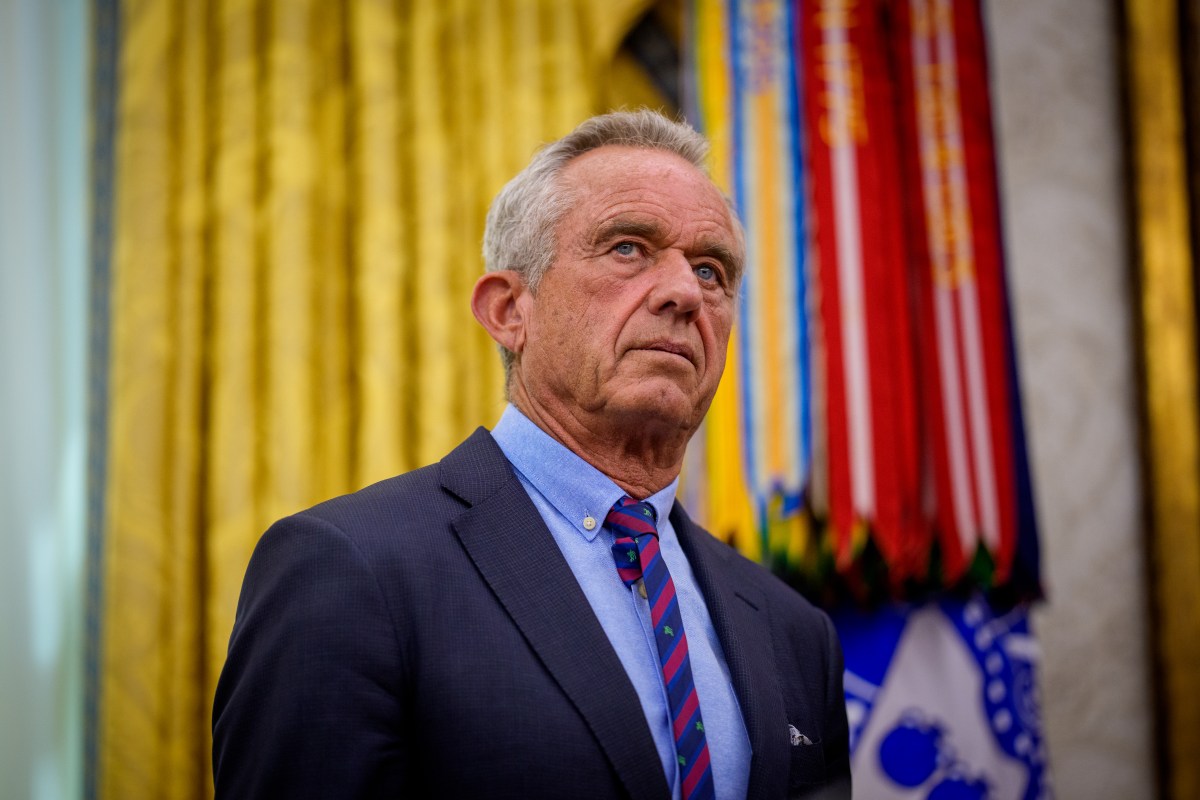
For years, Robert F. Kennedy Jr. has believed that childhood vaccines cause autism, and he’ been sharing such claims with everyone who would listen—from readers of Rolling Stone to strangers he encountered on hiking trails.
Now Kennedy is using his platform as secretary of the Department of Health and Human Services (HHS) to launch a project studying the cause of autism, and the way he’s going about it has prompted concern from vaccine researchers, people with autism and their families, and privacy advocates.
Kennedy announced in a televised Cabinet meeting on April 10 that his agency had “launched a massive testing and research effort.” But Kennedy seemed to have already reached a conclusion. “We will know what has caused the autism epidemic and we'll be able to eliminate those exposures,” he said. In the Cabinet meeting, President Donald Trump elaborated on what these exposures might be. “There’s got to be something artificial out there that’s doing this,” Trump said to Kennedy. It didn’t take long for Trump to hint at the long-discredited connection between vaccines and autism. “If you can come up with that answer, where you stop taking something, eating something, or maybe it’s a shot. But something’s causing it,” he added.
The Trump administration’s approach has advocates for autism research concerned. Many in the medical community worry that HHS research and data collection are less about scientific inquiry and more about confirming Kennedy’s long-held priors about vaccines and autism.
The suspicion that vaccines caused autism started in 1998, when the now-discredited British doctor Andrew Wakefield and his colleagues published a study in The Lancet linking the MMR vaccine to autism in children. Their results faced pushback soon after publishing, and the study was deemed fraudulent. But it took 12 years before The Lancet retracted the study entirely.
That was plenty of time for Wakefield’s theory to take hold, including with Kennedy. In 2005, he wrote a nearly 5,000-word piece published jointly by Salon and Rolling Stone headlined “Deadly Immunity,” alleging that thimerosal—a mercury compound that had been used in childhood vaccines until 2001—caused autism in children and the government covered up the evidence. This was in spite of numerous studies confirming no link between thimerosal and autism. The piece was so riddled with factual errors that both Salon and Rolling Stone retracted it after issuing several corrections.
But Kennedy’s assertions have continued ever since. He has claimed that vaccines cause autism at least 36 times, according to the Washington Post, and in 2023, he told Jesse Watters on Fox News, “I do believe that autism comes from vaccines.”
“There have been 24 studies looking at the question of whether the measles, mumps, and rubella vaccine causes autism, in seven countries, on three continents, involving thousands of children, and the results have always been the same, which is [the] MMR vaccine does not cause autism, but RFK refuses to believe it,” Dr. Paul Offit, the director of the Vaccine Education Center at Children’s Hospital of Philadelphia and the founding advisory board member of the Autism Science Foundation, told TMD. “So he’s going to study it, and you already know what his fixed, immutable belief is on this.”
After being confirmed as HHS secretary, Kennedy started putting his beliefs into action, reportedly tapping discredited researcher David Geier to conduct a new study looking into a linkage between vaccines and autism. In 2011, Geier was fined by the state of Maryland for practicing medicine without a license, and he prescribed a drug to treat autism that is used for chemically castrating sex offenders. He was previously known for retracted studies conducted with his father that spread misinformation about vaccines. Geier’s history raises eyebrows, to say the least, and his involvement casts doubt on the scientific validity of the HHS study. “The only reason you'd hire him to lead this is because you think vaccines cause autism,” David Mandell, professor of psychiatry at the University of Pennsylvania, told TMD. “At its very least, the goal is to identify an environmental toxin that appears to be associated with increased probability of autism. The most concerning is that it’s an attempt to link vaccines to autism.”
In April, the Centers for Disease Control and Prevention (CDC) released data showing that 1 in every 31 children had autism in 2022, compared to 1 in 36 in 2020. The CDC indicated that the increase is likely due to increased evaluation and awareness of autism, but Kennedy asserted otherwise in a press conference about the findings, calling autism an “epidemic.”
“One of the things that I think that we need to move away from today is this ideology that the autism prevalence increase—the relentless increases—are simply artifacts of better diagnoses, better recognition, or changing diagnostic criteria,” Kennedy said in the press conference.
“Because this epidemic denial has become a feature in the mainstream media, and it’s based on an industry canard, obviously there are people who don’t want us to look at environmental exposures … Autism is a preventable disease,” he added later.
However, studies show that at least 20 percent—and possibly upward of 80 percent—of autism diagnoses are because of inherited genes, the study of which Kennedy called a “dead end.” And environmental factors that contribute to autism have been studied for years. Offit also said that parental age and maternal health issues like obesity, diabetes, psychiatric disorders, and infections can be risk factors. “There is much that is known. You would never know that from hearing Robert F. Kennedy Jr. speak,” Offit said.
But for Kennedy, the current research is not enough. And his strategy for finding the cause of autism involves combing through troves of medical data. Jay Bhattacharya, the new director of the National Institutes of Health, announced plans to compile data from pharmacies, insurance companies, smartwatches, and other sources into one platform, while also creating an “autism registry” using private medical records that would track the data of Americans with autism. After a public outcry and a “deluge” of patients asking medical providers to scrub their data, the HHS walked back Bhattacharya’s claims, stating the agency is not creating a registry. Instead, it will create a “real-world data platform” that will support research into the causes of autism, linking existing datasets together.
“I’m actually not sure what’s different about what he’s proposing than when he said they were going to build a registry. They’re just not calling it a registry now,” Mandell said. “What you have done by merging these datasets is create all the information you would need to create a list of everyone who has an autism diagnosis across multiple systems in the United States.”
He explained that many of these datasets are already individually available for researchers, but scientists must apply to use the data and preregister what analyses will be conducted. While linking datasets together to better understand and treat autism is not inherently unethical, Mandell explained, the move raises concerns.
“This administration has shown their willingness to move fast and break things,” he said. Without proper protections for the data, there is a risk for the personal data of millions of Americans to leak. Additionally, it will take at least six months to link the data in a safe and ethical way, given that, for example, Medicaid data was not designed to be linked with commercial insurance data, and both are protected by different privacy laws.
“The second concern is that they are going to act like a kid in a candy shop,” Mandell said. “‘Here’s all this data, let’s just run a bunch of correlations or feed it to ChatGPT and see what comes up.’ That’s not science. Good science is hypothesis-driven.” Without limiting the data analysis to certain hypotheses, misleading correlations between autism and other factors could arise.
“And the third concern is that they will use these data to make decisions about policies, practices that negatively affect autistic people and their families,” Mandell said.
Leading advocates for autism research have already expressed their concern, including the Autism Science Foundation, which stated that the announcement raises “red flags,” given that who will be included, how the data will be used, and whether consent will be obtained from participants is not clear. “Typically, the answers to these questions are articulated at the beginning of a project, but that has not been the case in this instance,” the organization said in a statement.
Most of all, the project is most worrisome to those who feel that Kennedy’s motives for conducting the study is to find an association with vaccines. “I don’t trust Health and Human Services now because [Kennedy] is the head of it. And I think he is going to try and rig the game to prove something that he believes is true,” Offit said. “He has something that no scientist should ever have, which is a nonfalsifiable hypothesis. He believes this to be true with the strength of a religious conviction, and nothing will convince him otherwise.”
Today’s Must-Read
Nearly 100 days into his second term as president, things are clearly not going great for Donald Trump. His administration’s first major domestic undertaking, the dubious plan to cut government waste through the Department of Government Efficiency, appears to be rapidly losing support after months of goal-post moving and results embellishing. All the major stock market indices have declined significantly since the beginning of the year, largely due to Trump’s new tariff regime, which is already harming the economy in other ways. American allies feel spurned while American enemies appear emboldened. Even the most successful part of the Trump administration’s agenda, increasing border and immigration enforcement, has become mired in legal challenges thanks to some high-profile cases that suggest, at best, administrative carelessness and, at worst, defiance of the law.
Toeing the Company Line
Green Shoots
Does Trump’s polling slide matter?
The Good Tsar
Trump’s sycophants are chosen because of their weaknesses, not in spite of them.
A Night Under Fire in Kyiv
Sheltering in a subway station as missiles explode overhead.
A Brief Timeline of Trump and Crypto
From NFT trading cards to family ownership in a crypto firm.
Republicans Hone the Fine Art of Responding to Trump
During the president’s first 100 days, GOP lawmakers have kept public pushback to a minimum.
The Arrest of Judge Hannah Dugan
Plus: David Lat joins The Dispatch extended legal universe.
Worth Your Time
- Escalating tensions between India and Pakistan last week led to both countries’ governments cancelling visas for each other’s citizens. Writing in the New York Times, Suhasini Raj, Mujib Mashal, and Pragati K.B. share how the rift has affected families caught in the middle. “Families like Takhat Singh’s, with members on both sides of the border, faced painful separation,” they wrote. “Mr. Singh, his younger daughter and his son have Pakistani passports. His wife and his older daughter have Indian ones. They had all been in the Indian state of Rajasthan for the wedding of Pintu, the older daughter. When India announced the visa cancellations, the family left her behind in her future husband’s village and rushed to the border crossing, hoping to make it home before it closed. But Mr. Singh’s wife, Sindhu Kanwar, was not allowed to proceed because of her Indian passport. … With his wife’s Pakistani visa suddenly canceled, Mr. Singh worked his phone, pleading with officers to let her return with the rest of the family. They refused. But they allowed one concession: She could walk with them to the final checkpoint and wave goodbye.”
- In Reason magazine, Katarina Hall writes about the accidental discovery of an ancient Mayan megacity. “Swallowed by the rainforest, this lost urban center contained pyramids, plazas, amphitheaters, and highways,” she wrote. “But this discovery wasn’t made by a team of seasoned explorers hacking through the rainforest with machetes. It was made by a Ph.D. student. And he found it by accident. ‘I was on something like page 16 of a Google search and found a laser survey done by a Mexican organization for environmental monitoring,’ Luke Auld-Thomas, who is pursuing his doctorate at Tulane University, explained to the BBC in October. That overlooked, decade-old survey contained groundbreaking information hidden in plain sight. … Now named Valeriana, this lost metropolis is believed to be one of the densest Mayan cities ever discovered. At its peak (between 740 and 850 A.D.), it may have housed anywhere from 30,000 to 50,000 people—more than the region's population today. Over 6,000 buildings were identified, ranging from homes to towering pyramids.”
Presented Without Comment
CNN: US Navy Loses $60 Million Jet At Sea After It Fell Overboard From Aircraft Carrier
In the Zeitgeist
On this day 126 years ago, jazz legend Duke Ellington was born—although he didn’t call his craft jazz, but “American music.” For someone who grew up in the early 20th century—before streaming, CDs, cassettes, and even vinyl records—musical inspiration might have been hard to come by. But not for the Duke. In 1944, Ellington told The New Yorker’s Richard O. Boyer “that the train’s metallic rhythm soothes him.”
Indeed, one of the most recognizable hits performed by the Duke Ellington Orchestra, and composed by Ellington’s longtime collaborator Billy Strayhorn, was none other than “Take the A-Train.”
Let Us Know
Are you concerned about a potential HHS “real-world data platform”?
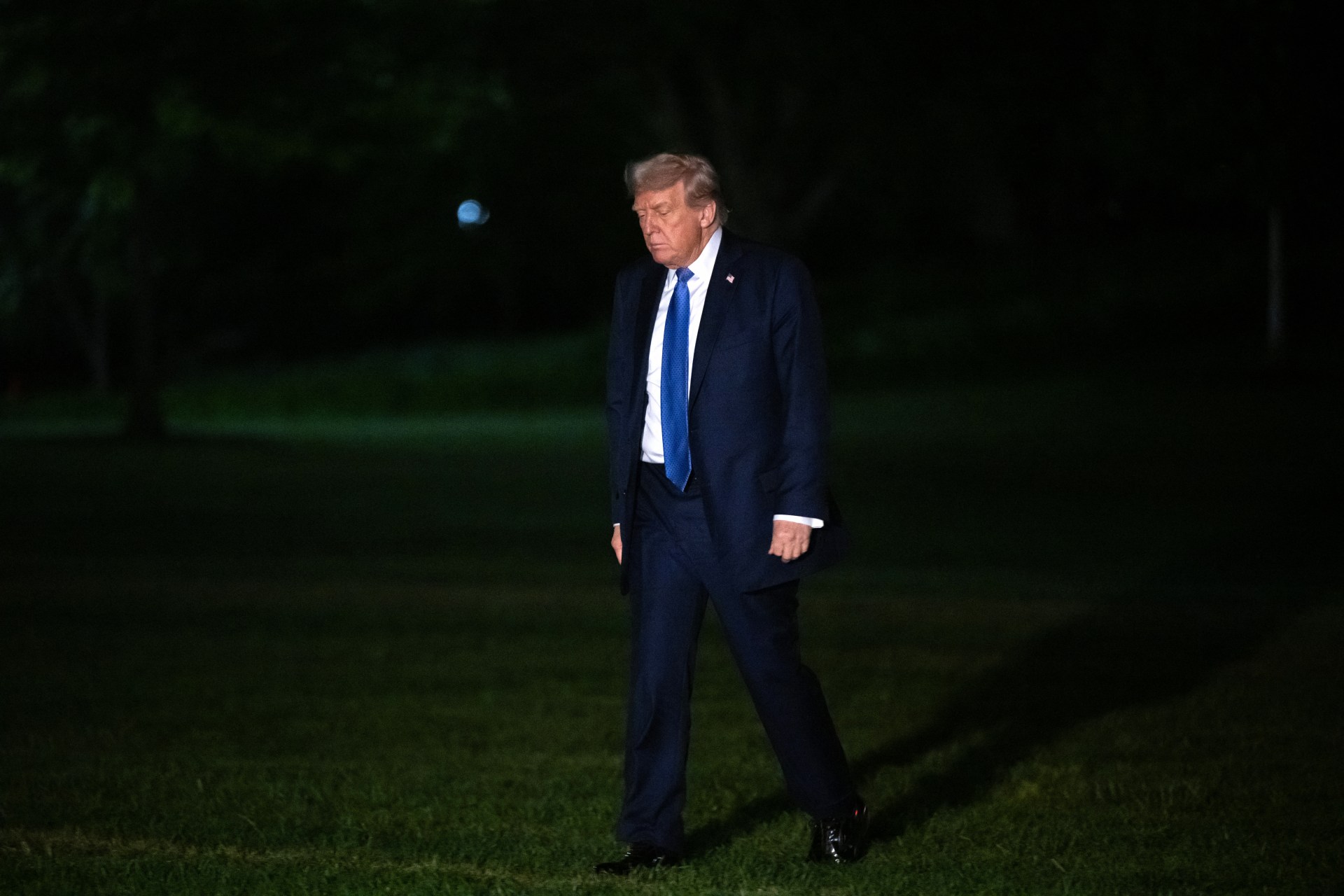
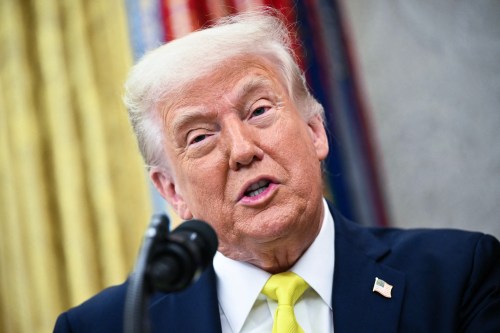
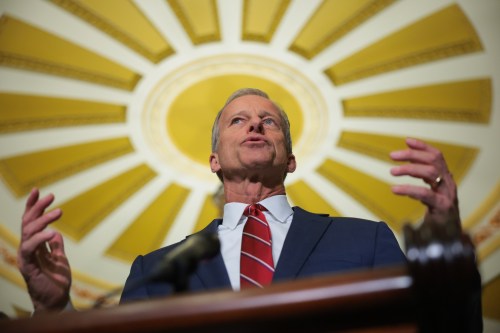

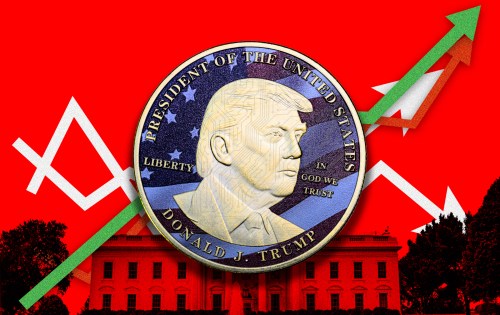
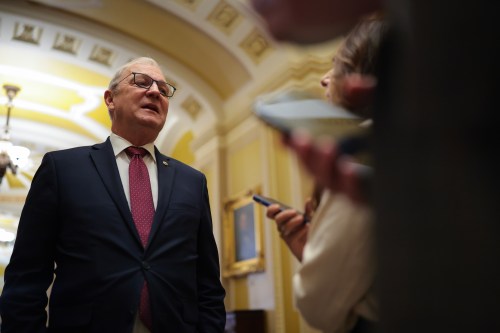
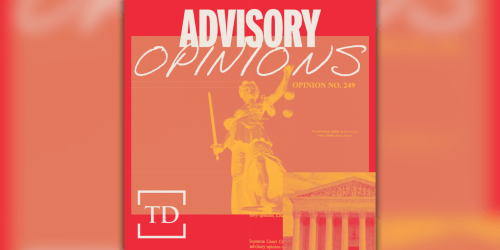



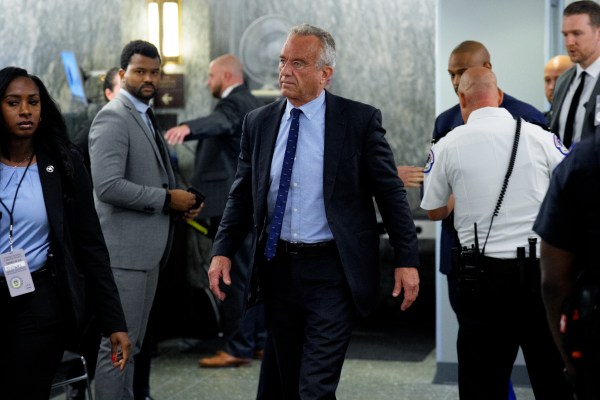


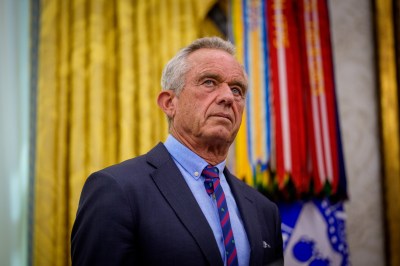
Please note that we at The Dispatch hold ourselves, our work, and our commenters to a higher standard than other places on the internet. We welcome comments that foster genuine debate or discussion—including comments critical of us or our work—but responses that include ad hominem attacks on fellow Dispatch members or are intended to stoke fear and anger may be moderated.
With your membership, you only have the ability to comment on The Morning Dispatch articles. Consider upgrading to join the conversation everywhere.